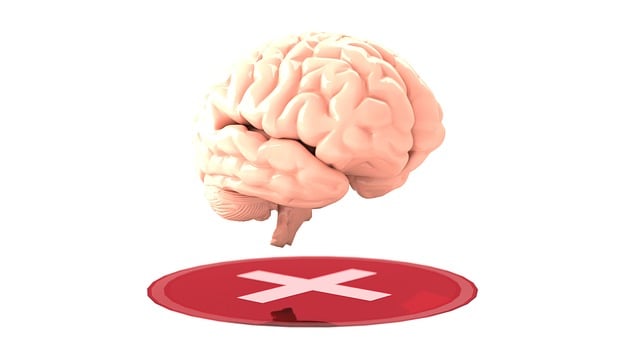Risk assessment is a critical aspect of mental health practice, utilizing tools like Aurora Cognitive Processing Therapy (ACPT) to identify and mitigate risks during therapy sessions. ACPT targets cognitive distortions, reducing trauma's impact and promoting healthier coping mechanisms. This structured approach allows professionals to proactively address risks in complex cases or high-risk populations, enhancing patient safety and outcomes while preventing therapist burnout. Incorporating self-awareness exercises, stress management workshops, and ACPT into treatment plans fosters supportive environments and benefits both therapists and patients.
Mental health professionals constantly navigate complex risks, from managing patient safety to mitigating potential harm. This article delves into the crucial aspect of risk assessment within mental health practice, offering a comprehensive guide for professionals. We explore the fundamentals of understanding risk assessment and its application in enhancing clinical care. Furthermore, we introduce Aurora Cognitive Processing Therapy as a powerful tool for risk management, providing strategies tailored to clinical settings to ensure effective patient outcomes.
- Understanding Risk Assessment in Mental Health Practice
- Applying Aurora Cognitive Processing Therapy to Enhance Risk Management
- Strategies for Mitigating Risks in Clinical Settings
Understanding Risk Assessment in Mental Health Practice

In mental health practice, risk assessment is a cornerstone of effective patient care and safety. It involves meticulously evaluating and understanding the potential risks and hazards that patients may face during therapy. This process ensures that professionals are well-equipped to manage and mitigate any possible negative outcomes, fostering an environment conducive to healing and recovery. By integrating strategies such as Aurora Cognitive Processing Therapy, mental health practitioners can enhance their ability to assess complex patient profiles, identify underlying risk factors, and tailor interventions for optimal effectiveness.
Risk assessment in this context goes beyond merely identifying vulnerabilities; it also involves promoting Mental Health Awareness and equipping patients with Self-Awareness Exercises to actively participate in their healing journey. Through rigorous risk assessment, professionals can implement preventive measures, facilitate Anxiety Relief, and ensure the overall well-being of individuals seeking therapy. This proactive approach not only enhances patient outcomes but also underscores the commitment of mental health practitioners to providing safe, compassionate, and evidence-based care.
Applying Aurora Cognitive Processing Therapy to Enhance Risk Management

In the realm of mental health care, effective risk management is paramount to ensuring patient safety and well-being. Applying evidence-based therapeutic approaches like Aurora Cognitive Processing Therapy (ACPT) offers a robust framework for enhancing risk assessment and mitigation strategies. ACPT focuses on identifying and modifying cognitive distortions, thereby reducing the impact of traumatic experiences and promoting healthier coping mechanisms. By integrating this therapy into their practices, mental health professionals can proactively address potential risks associated with complex cases or high-risk populations.
ACPT facilitates a structured process to evaluate patients’ thought patterns and beliefs, which are often at the root of heightened risk factors. Through targeted interventions, healthcare providers can support clients in navigating challenging emotions and stressful situations more effectively. Additionally, ACPT emphasizes the importance of strong therapeutic alliances and open communication strategies, essential elements for early detection of warning signs and timely intervention. This holistic approach not only aids in burnout prevention among healthcare providers but also enhances trauma support services while fostering a supportive and safe environment for vulnerable individuals.
Strategies for Mitigating Risks in Clinical Settings

Mental health professionals are constantly navigating a complex landscape where mitigating risks is paramount to ensuring safe and effective therapy. Implementing robust strategies can significantly reduce potential hazards within clinical settings. One such approach is incorporating self-awareness exercises into the treatment plan. By fostering greater self-awareness among therapists, they can better manage their emotions and anticipate potential triggers, thereby enhancing patient care.
Additionally, promoting a culture of self-care routine development for better mental health is essential. Encouraging professionals to prioritize their well-being through structured self-care practices can prevent burnout and improve resilience. Stress management workshops organized by the therapy center or external experts can equip therapists with valuable tools to handle stress effectively. These initiatives, including the integration of Aurora Cognitive Processing Therapy techniques, contribute to a healthier work environment, ultimately benefiting both professionals and the patients they serve.
Mental health professionals play a vital role in enhancing people’s lives, but they are not immune to risks. Effective risk assessment is essential for ensuring safe and quality care. By understanding risk assessment principles, integrating evidence-based practices like Aurora Cognitive Processing Therapy, and implementing robust strategies for mitigation, professionals can navigate potential challenges while fostering positive outcomes. These approaches contribute to a more resilient and supportive clinical environment.














